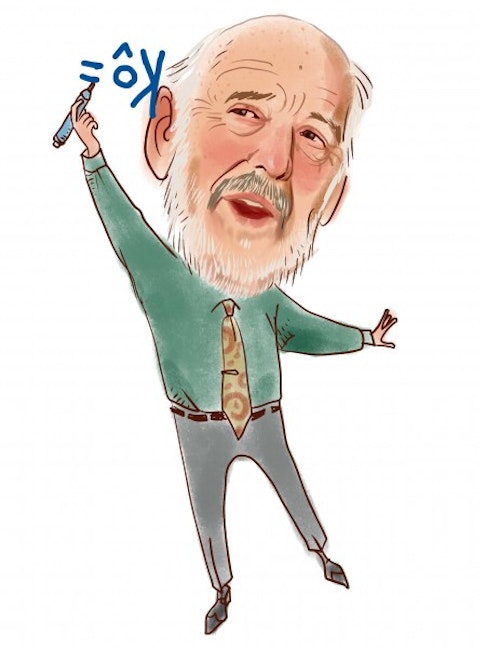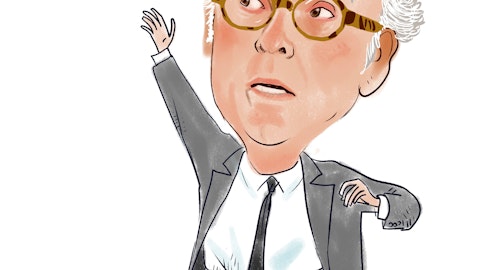We track insider transactions because we believe that no one knows a company better than the people who work there. It has been shown that insiders tend to outperform the market by as much as 7% annually (read more about how this strategy can boost your returns).
In a recent Form 4 filing with the SEC, three of Mastercard Inc (NYSE:MA)’s insiders decided to sell off over 5,000 shares collectively. These include Gary Flood—President of Global Products and Solutions, Noah Hanft—General Counsel, and Chris Mcwilton—President of U.S. Markets. In total, the sell-off was in the price range of $485-$490 per share.
This is the first sell-off by any of these insiders since March, where the same three insiders collectively sold off over 20,000 shares in the range of $415-$425 a pop. Since Mastercard broke the $420 mark, there have been a number of notable large insider sales.
President of Mastercard Technologies, Robert Reeg, sold off nearly 5,000 shares during August – just above $420 per share – and Chief HR Officer Stephanie Voquer sold off 3,000 shares in September above $440 per share. The Mastercard Foundation has also been on a steady selling spree, having sold off over 200,000 shares since July—the first sale since early spring. Despite the negative insider sentiment, billionaire Jim Simons’ firm Renaissance Technologies is one of the top investors in Mastercard (check out Simons’ top picks).
Gross dollar volume for Mastercard is expected to be up in 2012 and 2013, leading to revenue boosts of 10% and 12%, respectively. Mastercard is expected to grow EPS at 18% annually over the next five years, but it may also see slower international growth. Mastercard could, however, see better-than-expected growth assuming it can continue to make strategic investments into e-commerce and mobile payments.
One fundamental positive for both Mastercard and its most formidable opponent Visa Inc (NYSE:V) is the consumer shift from using cash/checks to cards. Although Mastercard is expected to see gross domestic volume growth (GDV), Visa expects GDV to remain flat. Even so, Visa expects to grow revenues at a greater pace than Mastercard, at 13% in 2013 and 12% in 2014.
Unlike Mastercard, Visa should see positive growth in payment volumes driven by overseas and emerging markets. Visa’s long-term growth is expected to outpace Mastercard by 2 percentage points and is forecasted at 20% compounded annually. Although Visa’s trailing P/E can be intimidating at 47x, the fact that its forward P/E is 18x suggest investors might not be fully taking into account Visa’s rapid growth opportunities. Billionaire Ken Fisher – founder of Fisher Asset Management and columnist for Forbes – is one of the top firms showing confidence in Visa and upping his stake nearly 50% (see Fisher’s new picks).
Discover Financial Services (NYSE:DFS), American Express Company (NYSE:AXP) and Capital One Financial Corp. (NYSE:COF) are all credit card companies competing with Mastercard and Visa for spenders’ dollars. These credit card operators trade below the major debit card companies on a P/E basis – with an average P/E of 11x – but also have fewer growth prospects. All three companies have long-term growth rates that come in below 11% on average.
Discover trades the cheapest of the five financial stocks at 10x earnings and has a PEG of only 0.9. We would consider Discover the best value of the credit card companies, despite being up over 70% year to date; it has made recent initiatives to drive future growth by entering the promising e-commerce payments market. Discover is now testing fingerprint payment methods, and earlier this year announced plans to partner with Pay Pal to enter the mobile payment market.
American Express trades the highest of our credit card companies at 13x earnings, but it also pays the highest dividend yield at 1.5%. We believe that American Express is making strides to appeal to under-banked customers by beefing up its lower-end credit card offerings and prepaid cards. While these new offerings may open the card company up to more risk, it will be a fundamental driver for its expected 11% five-year growth. American Express is one of billionaire investor Warren Buffett’s top financial picks (see them all here).
Capital One is making an effort to take more advantage of spenders versus borrowers with its recent acquisition of ING Direct, which increased deposits by over 75%. Strapped with a banking unit, Capital One now plans to open brick-and-mortar institutions. The company’s stock also trades at a PEG that is less than 1.0, thanks to its solid long-term growth rate of 10%.
It’s possible that the large number of insider sales at Mastercard is a signal that corporate executives are seeing an overvaluation begin to bubble its way to the surface, so to speak. Meanwhile, we are still encouraged by the debit card and payment processing industry as a whole, and would consider Visa a better value and growth play at the moment.






